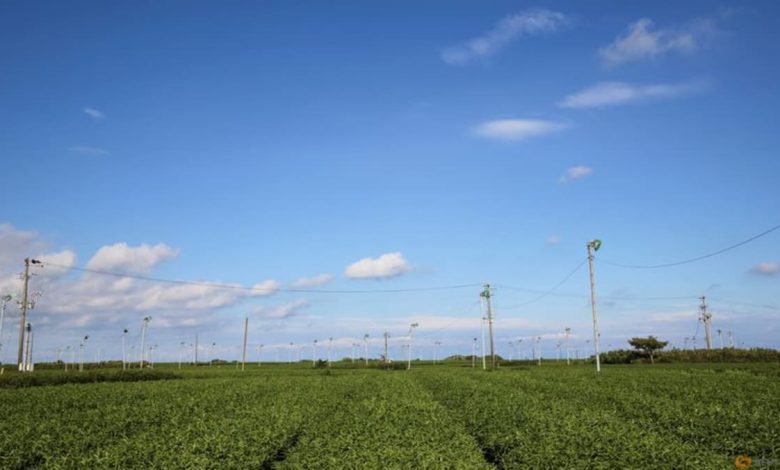In Bank of Japan chief’s birthplace, Ueda’s policy puzzle is laid bare

MAKINOHARA, Japan : For a sense of the challenges Bank of Japan Governor Kazuo Ueda faces in weaning the world’s fourth-largest economy off monetary stimulus, look no further than his birthplace.
Makinohara, a breezy surf town that once thrived on a now-declining tea industry, exemplifies disparities between Japan’s struggling rural areas and its bustling mega-cities. It featured this year in a widely publicised list of places on track to vanish due to depopulation.
Shortly after Ueda’s elevation in April 2023, the soft-spoken 73-year-old talked about the “very serious challenge” rural areas posed for Japan’s recovery.
Since then, the BOJ has begun to unwind massive stimulus that propped up the economy for decades. It delivered the first interest-rate hikes in 17 years on the back of national data showing rising wages and consumer demand. The bank is expected to raise rates again by year-end.
Yet in Makinohara, the conundrum the BOJ faces in setting policy for a two-speed economy is clear, according to Reuters interviews with eight residents, including business owners, town officials and relatives of Ueda.
Some voiced unease at the pace of the BOJ’s shift and the effect on companies with little room to raise wages or absorb higher loan repayments. They described a local economic picture at odds with the rosier national situation portrayed by the central bank.
The mayor, Kikuo Sugimoto, said Makinohara was not keeping pace with Japan’s broader recovery.
“The BOJ made the call that it was fine to raise rates because inflation is happening and wages are increasing, but we’re not quite feeling that yet in the rural areas,” Sugimoto said.
Rising rates “will end up acting as a brake,” said Yoshimaru Suzuki, who runs Hachimaru, a 200-year-old soy sauce maker that in the 1980s diversified into assembling wiring systems that go into cars and ships.
Suzuki, 47, said he had not been able to raise salaries at a rate beyond the minimum wage rise. While he has begun to increase prices to mitigate higher costs, he worries that rate hikes and a stronger yen will hit his export-focused customers.
“We don’t really have a chance of survival unless domestic demand increases,” Suzuki said. If rates continued to rise, he worried that he’d be unable to repay his bank loans.
BOJ survey data from June showed business sentiment in the wider Tokai region – which includes Shizuoka prefecture, where Makinohara is located, and also cities such as Nagoya – lagged the national figure by five points. The reading was among the lowest of nine regions surveyed.
Japan’s new prime minister, Shigeru Ishiba, whose ruling Liberal Democratic Party faces a general election on Oct. 27, used his leadership victory speech last week to call for efforts to revitalise and protect rural areas. On Wednesday, he said Japan was not ready for another rate increase.
The Bank of Japan declined to comment to Reuters about the impact of its policy shift on rural economies like Makinohara.
RURAL ROOTS
Both Ueda’s parents are from Makinohara and he is hailed as its most famous son. After Ueda left as a young boy to study in Tokyo, his relatives said he returned during school holidays to the town.
Reuters visited his family home, a house with an ornate tiled roof, tucked away off a thoroughfare. There were few pedestrians around on a midweek afternoon in August. A nearby clothing store appeared closed.
At the house, Ueda’s uncle Rokuro Ueda, who is just six years his senior, reminisced about their youth, reclining on a sofa in a drawing room where a picture of him and Ueda arm-in-arm was propped up against a bookcase.
During their summers together, the studious Ueda preferred listening to English lessons on the radio rather than playing outside, Rokuro said. Ueda went on to study economics in the U.S. under monetary-policy theorist Stanley Fischer, sat on the BOJ’s policy board between 1998 and 2005, and taught at universities in Tokyo and Canada before his elevation last year.
In 2010, Ueda returned to Makinohara to deliver a lecture on Japan’s economic challenges at the invitation of then-mayor Shigeki Nishihara, who is also a distant relative of his.
While the graphs, charts and concepts from that lecture may have puzzled the local audience, Nishihara said the important thing was to demonstrate that someone from Makinohara could rise to wield national influence.
“Somewhere in Kazuo’s heart, there are roots that tie him here too,” Nishihara said.
But Ueda is one in a long line of locals that have made the three-hour trip to Tokyo and rarely looked back.
In its heyday in the 1980s, Makinohara was a hub of Japan’s booming tea industry, so much so its wealthy farmers could spend half the year on the golf course, said Sugimoto.
With that industry in decline due to changing consumer habits, the town now relies on the jobs and revenue provided by a clutch of big companies with bases in Makinohara, including carmaker Suzuki Motor and automotive parts supplier Yazaki.
A Suzuki spokesperson said the company seeks to contribute to the economic development of all areas where it has a presence, including Makinohara.
Over the last two decades, Makinohara’s population has shrunk by over 20 per cent to about 43,000 people, and its biggest demographic is now people in their 70s, according to the local government.
A study released in April by the Population Strategy Council named Makinohara among municipalities deemed at risk of vanishing because their population of women aged 20 to 39 would halve by 2050.
RISK TAKERS
Despite their modest contribution to overall GDP, rural areas like Makinohara are home to many of Japan’s small- and medium-sized businesses. Such businesses account for 65.6 per cent of jobs and 56 per cent of Japan’s economy, according to a government report published this year.
When the BOJ raised rates for a second time this year in July, Ueda acknowledged that some small firms may not be able to keep up with the pace of wage increases.
That was true for Akio Yamamoto, the CEO of agricultural business Sagara Bussan. The firm, which can be traced back three centuries and once briefly ran a brothel, processes tea and sells fertilizers and pesticides.
“I would like to raise the wages of my employees, but small businesses don’t have the capacity to do that,” said Yamamoto, 68, adding that he had been cutting staff this year by not replacing those that had retired.
The BOJ’s shift has also come with a change of government strategy, Reuters reported in July: Unproductive companies are increasingly being left to fail.
Asked in April 2023 about how he would consider rural areas in his policy thinking, Ueda stressed the need for businesses to find innovative ways to adapt and grow internationally.
Some in Makinohara, like agricultural startup M2 Labo, have heeded that call.
President Yuriko Kato, 50, said she welcomed the path of policy normalization Ueda is charting. Higher rates and a stronger yen will help secure the company’s overseas investments in India, she said.
“If we get cautious, then all that’s left for us is to sink,” she said, adding that it was easier to get things done abroad than wait for change in Japan.
That spirit is evident elsewhere in Makinohara, home to a craft brewery, a boutique coffee shop and a surf stadium that generates artificial waves.
The town also hosts a global business contest. One of its previous winners, S.Lab, a Ukrainian company that makes biodegradable packaging out of waste and fungi, told Reuters it is preparing to build a factory in Makinohara.
Yamamoto, too, is eyeing fruitful endeavours.
He is banking on bananas to be the next big thing and is growing some in a patch of land behind his house that used to be a tea field.
“Isn’t it more interesting to make a new local speciality?” he said, as he drove to a near-deserted park where a statue of one of the firm’s previous owners stands in honour of his contribution to the tea industry.
“Maybe in 10 years’ time they’ll call me the founder of the famous Makinohara banana,” he added with a chuckle.





